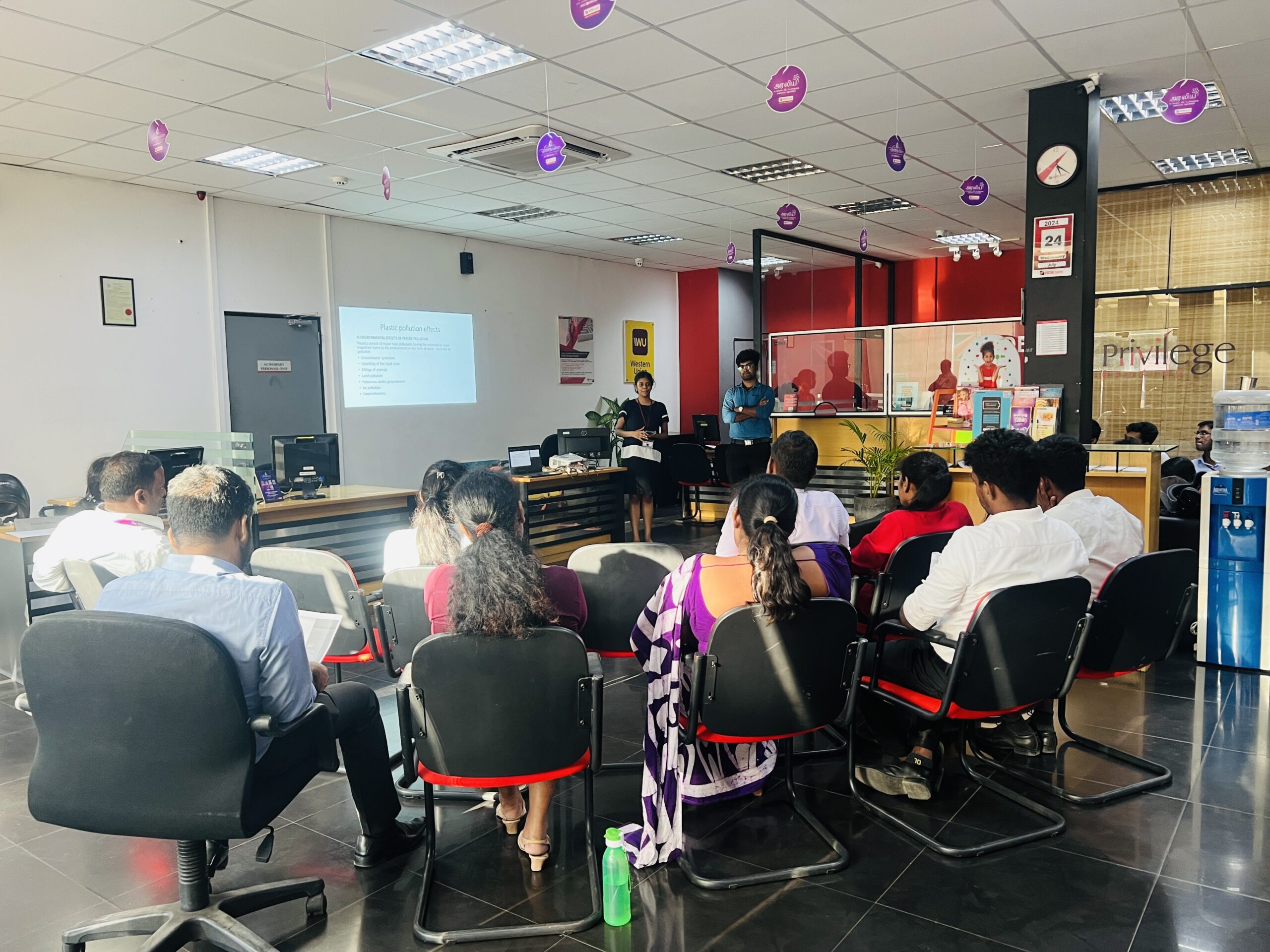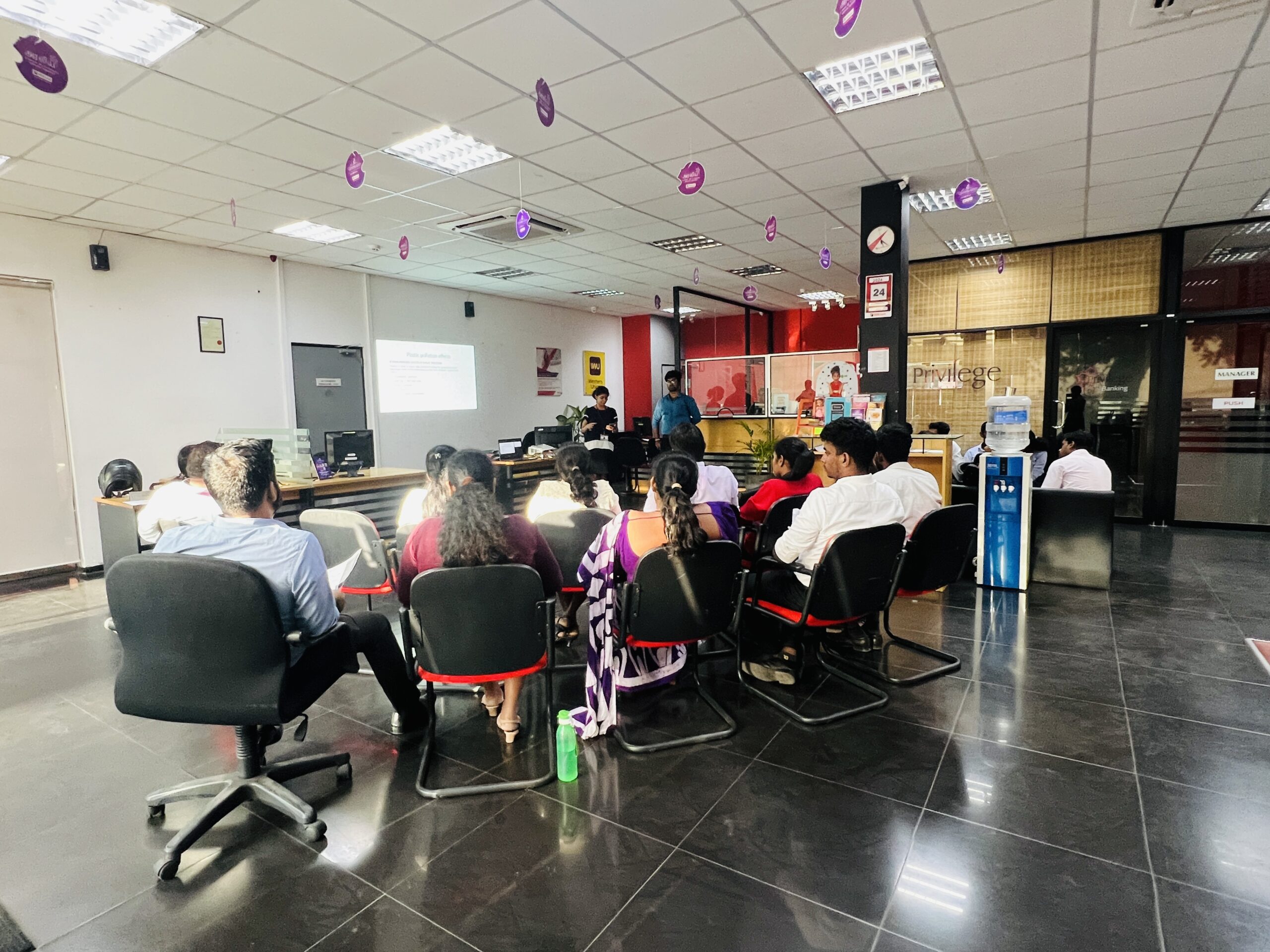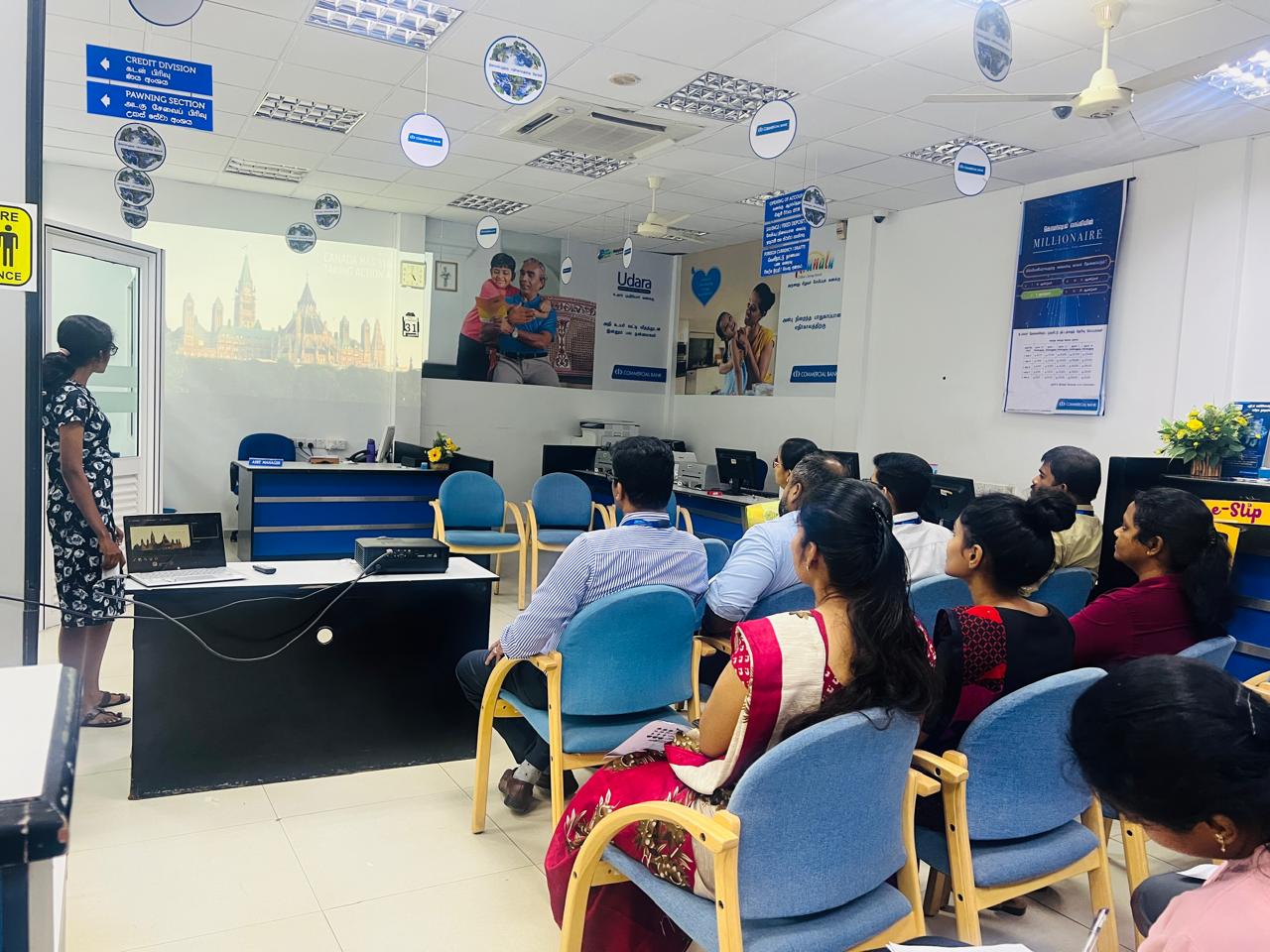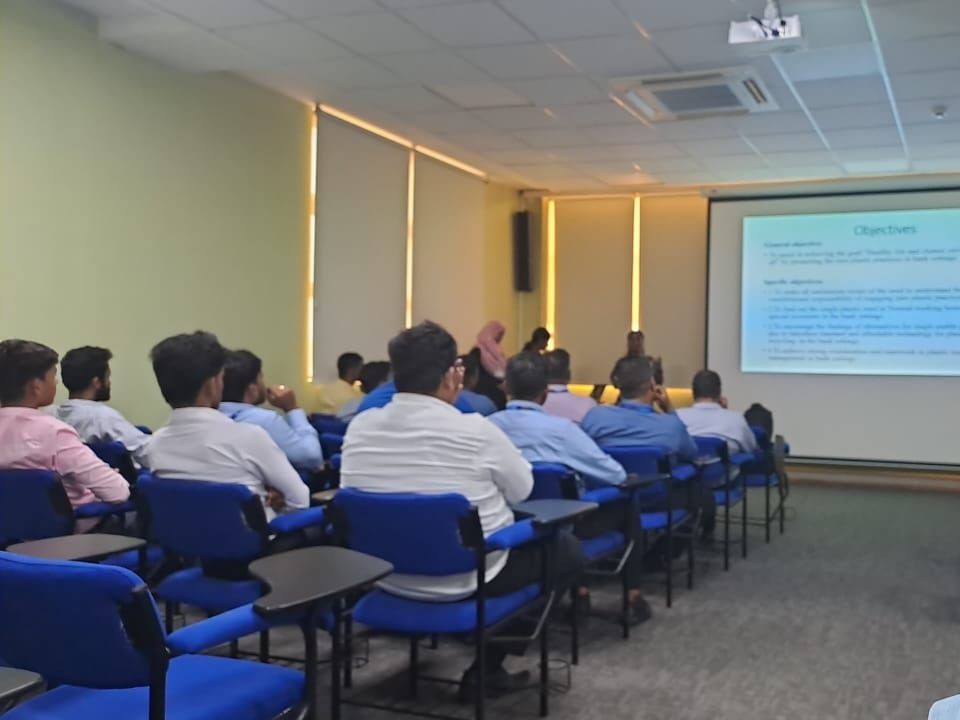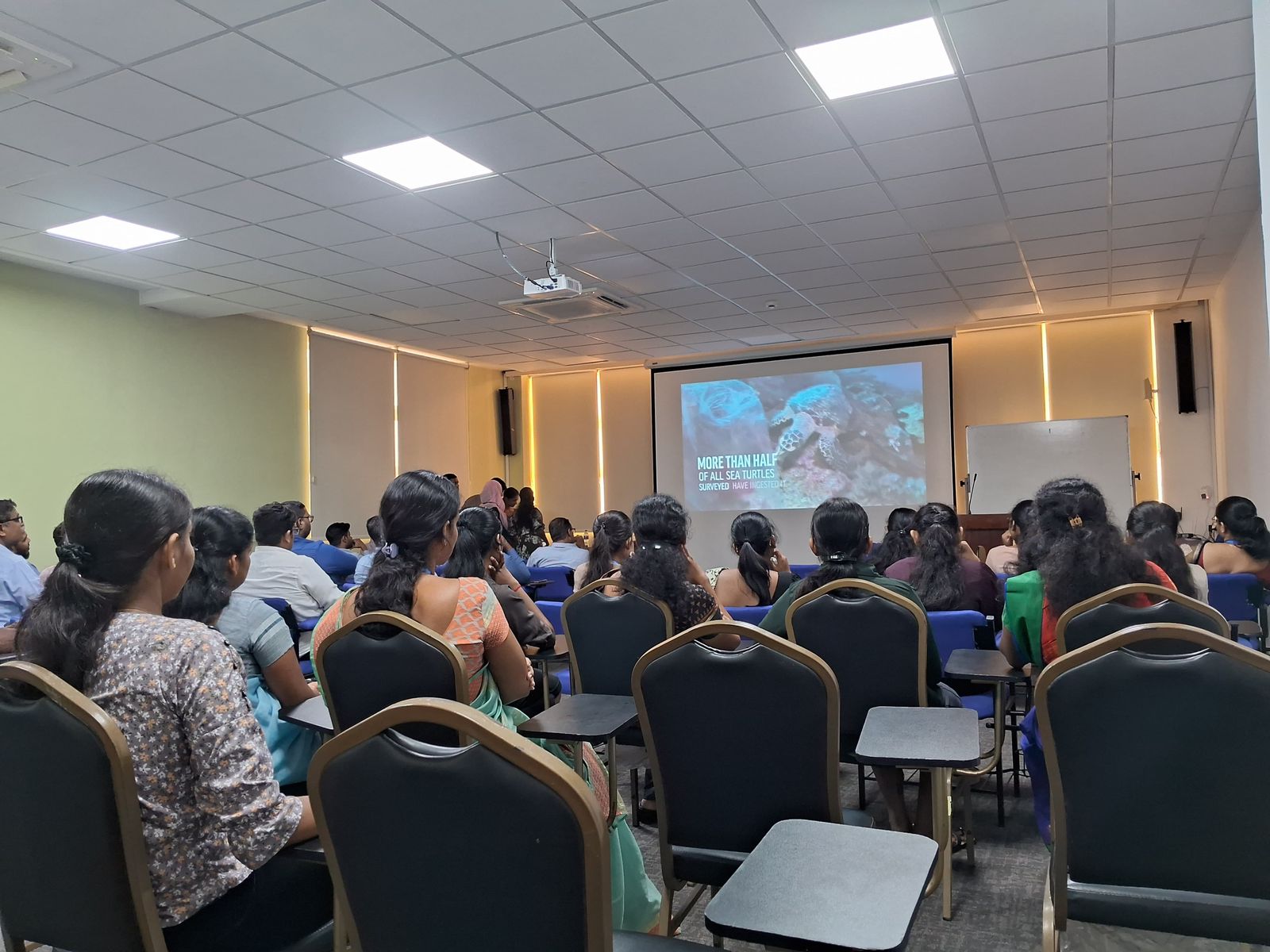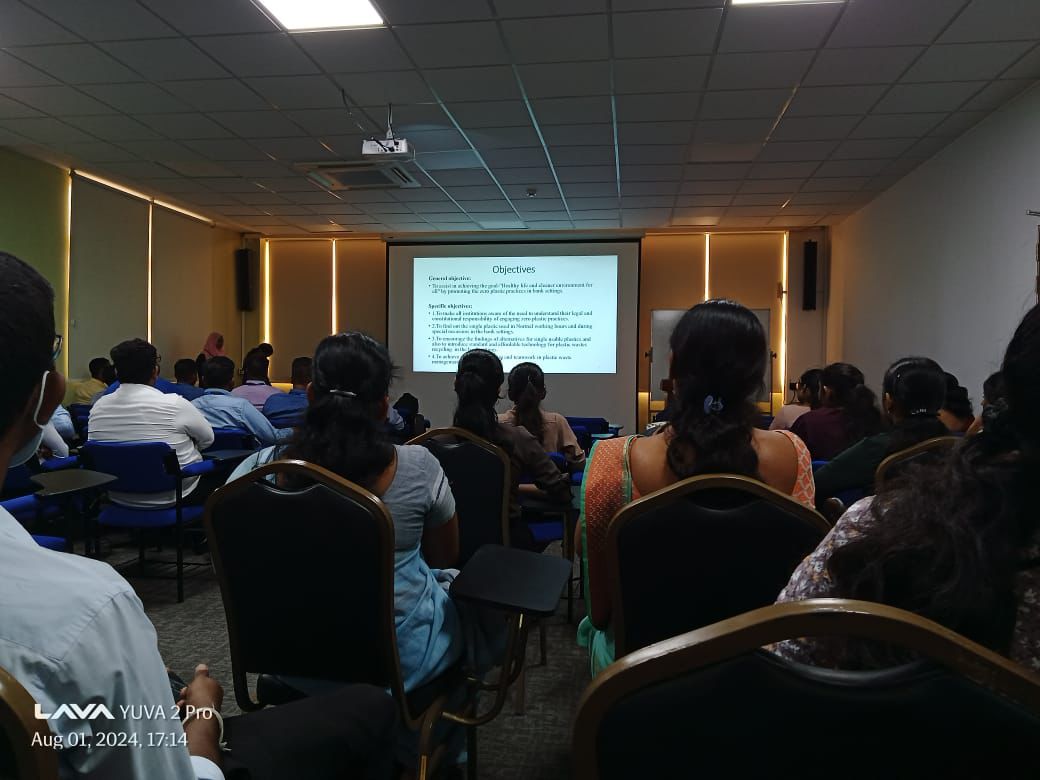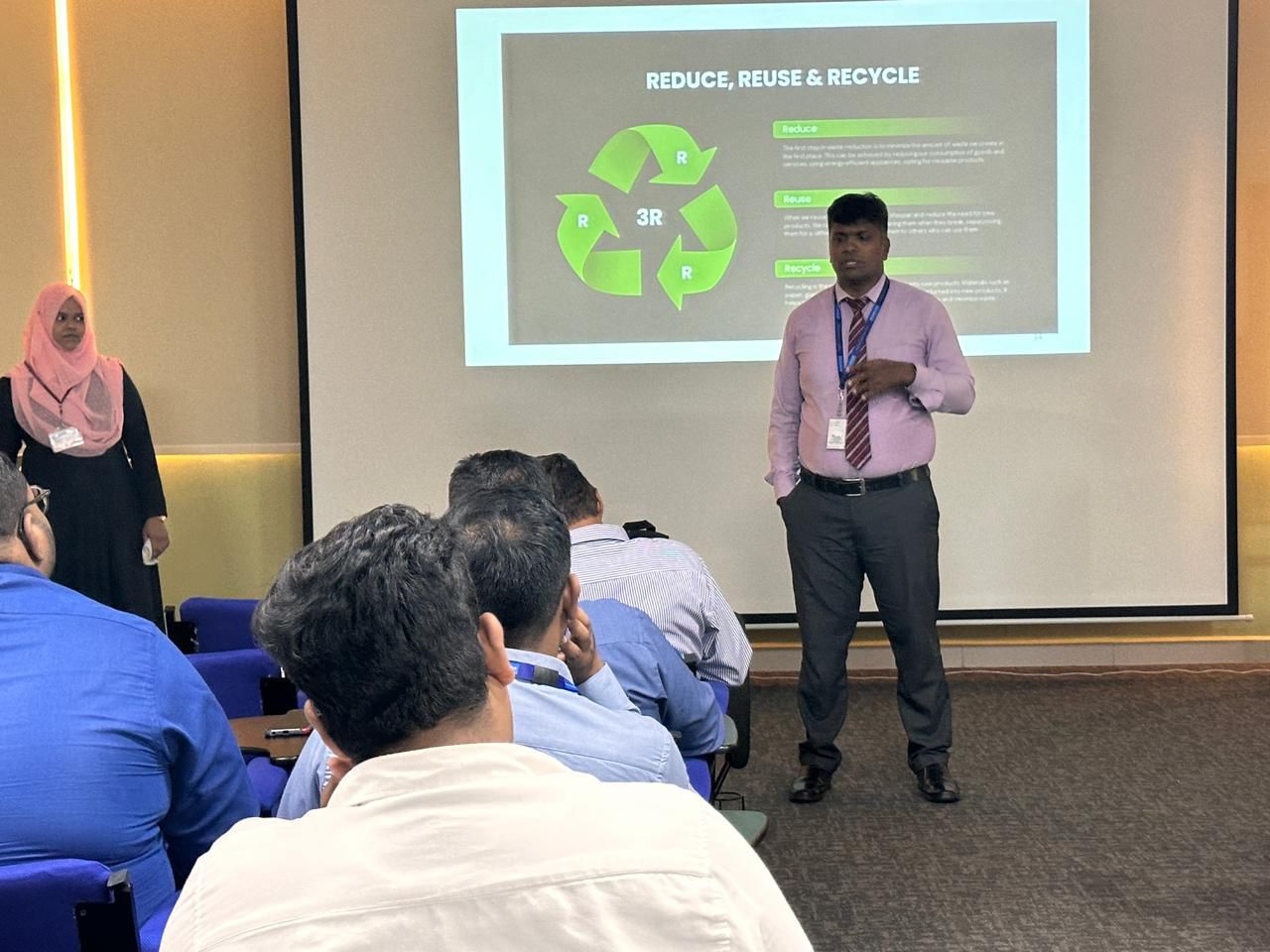Workshop Agenda and Discussions
During the workshops, several key topics were discussed, all centered around the theme of reducing plastic usage and promoting sustainable practices within the banking sector.
Plastic Pollution Effects and Bank Plastic Use
The workshop began with a discussion on the severe environmental and health impacts of plastic pollution, particularly in coastal areas like Jaffna.
The current usage of plastic within the banks was assessed, highlighting the most common forms of plastic waste generated, such as single-use plastic items, plastic packaging, and disposable plastic products.
Benefits of Zero Plastic and Alternatives for Plastic
The facilitators outlined the numerous benefits of transitioning to a zero-plastic approach, including reduced environmental impact, enhanced corporate social responsibility, and improved public image.
Alternatives to plastic were introduced, such as biodegradable materials, reusable items, and digital solutions to replace plastic-based products and packaging.
Plastic Waste Management
Effective strategies for managing plastic waste within the banking environment were discussed.
The workshop emphasized the importance of reducing plastic at the source, recycling, and proper disposal methods.
Employee Engagement in Zero Plastic Program
A significant focus was placed on employee engagement, as the success of the zero-plastic initiative heavily depends on the active participation of all bank staff.
The workshop concluded with the formation of a dedicated employee engagement program, where employees from each branch volunteered to lead the zero-plastic efforts.
This program will involve regular training, awareness campaigns, and the monitoring of plastic usage within the banks.
Conclusion
The Zero Plastic workshops conducted at the five bank branches under the Jaffna Municipal Council area mark a crucial step towards sustainable banking practices. By addressing the issues of plastic pollution and empowering employees to take action, these banks are setting an example for other institutions in the region. The ongoing commitment to reducing plastic usage and adopting eco-friendly alternatives will contribute significantly to the environmental well-being of Jaffna and its surrounding communities.
The success of this initiative will be monitored through regular reviews, with the hope that it will lead to the full implementation of zero-plastic policies across all branches in the near future.














